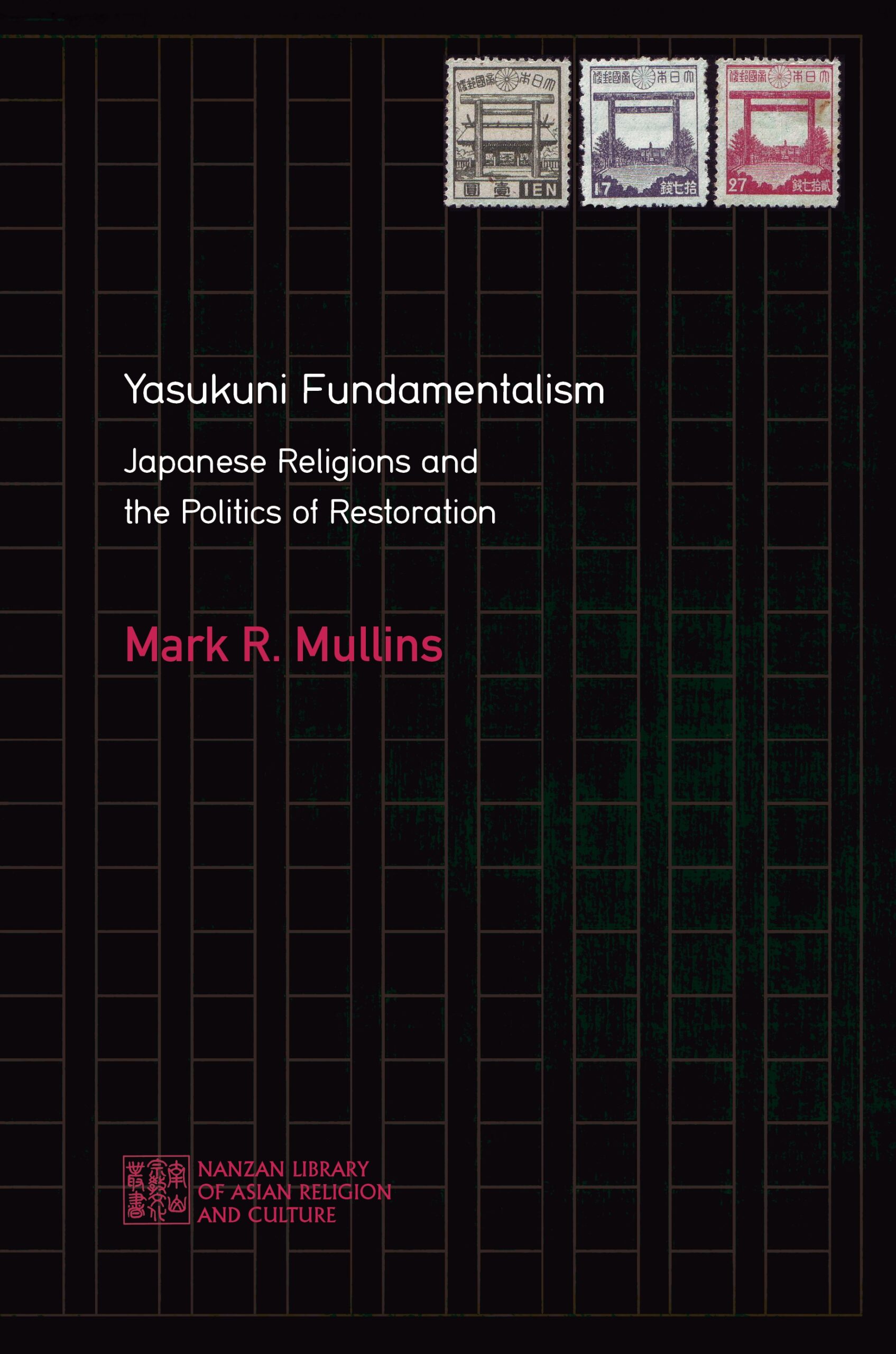Yasukuni Fundamentalism: Japanese Religions and the Politics of Restoration
Awards
- Winner of the New Zealand Asian Studies Society Book Awards, 2023
- Winner of the AAR Book Award for Excellence in the Study of Religion: Analytical-Descriptive Studies, 2024
- About the Book
-
Although religious fundamentalism is often thought to be confined to monotheistic “religions of the book,” this study examines the emergence of a fundamentalism rooted in the Shinto tradition and considers its role in shaping postwar Japanese nationalism and politics. Over the past half-century, the Liberal Democratic Party (LDP) and the National Association of Shrines (NAS) have been engaged in collaborative efforts to “recover” or “restore” what was destroyed by the process of imperialist secularization during the Allied Occupation of Japan.
Since the disaster years of 1995 and 2011, LDP Diet members and prime ministers have increased their support for a political agenda that aims to revive patriotic education, renationalize Yasukuni Shrine, and revise the constitution. The contested nature of this agenda is evident in the critical responses of religious leaders and public intellectuals, and in their efforts to preserve the postwar gains in democratic institutions and prevent the erosion of individual rights. This timely treatment critically engages the contemporary debates surrounding secularization in light of postwar developments in Japanese religions and sheds new light on the role religion continues to play in the public sphere.
- About the Author(s)
-
Mark R. Mullins, Author
Mark R. Mullins is professor of Japanese studies and director of the Japan Studies Centre at the University of Auckland.Matthew D. McMullen, Series Editor
Matthew D. McMullen is senior research fellow at the Nanzan Institute for Religion and Culture and associate professor at Nanzan University.
- Reviews and Endorsements
-
- This well-researched and gracefully written book brings us inside the worldview surrounding the ardent veneration of the war dead at the Yasukuni Shinto Shrine. It brilliantly details the resurgence of sectarian patriotism in Japan exemplified by the shrine and illumines the controversies around its xenophobic adoration. In doing so it not only provides an important case study of Japanese religious politics, but also portrays a significant example of a global phenomenon. For that reason, it should be required reading for those interested in Japanese religion and society, and for anyone concerned about the rising tide of religious nationalism around the world.
—Mark Juergensmeyer, University of California, Santa Barbara - Mark Mullins’s study, Yasukuni Fundamentalism, goes well beyond the issue of Yasukuni to explore religious nationalism in Japan in all its forms. Set in the context of a sophisticated view of the nature of secularization in Japan, as essentially an elite, top-down project, he examines the Association of Shinto Shrines and its close ally the Japan Conference. Association leadership, he writes, acts out of a sense of having been unfairly deprived by the Occupation of Shinto’s public status and a determination to restore lost privileges. He shows that in fact, however, support for nationalist campaigns such as constitutional revision is weak among Shinto shrine priests and parishioners. This book is a major contribution to the study of religion and nationalism.
—Helen Hardacre, Harvard University - Professor Mark Mullins reveals the complex political process during the U.S. Occupation of Japan that resulted in the transformation and survival of Shinto, before presenting a comprehensive analysis of the close relationship between the postwar Shinto restorationist movement and the revisionist political initiatives of the ruling Liberal Democratic Party. A huge contribution to the fields of Japanese studies, sociology of religion, and the comparative politics of nationalism, this book is a must read for those interested in modern Japan as well as those who study the contemporary and global phenomenon of religious nationalism from a comparative perspective.
—Koichi Nakano, Sophia University - A brilliant study of religious nationalism in contemporary Japan that puts the Yasukuni Shrine—a central space for memorializing Japan’s war dead—in a global context. The book demonstrates that the use of religious symbolism by right-leaning political organizations in Japan is indeed a global phenomenon with close parallels in Europe and the United States, and elsewhere. Mullins shows how the complex interplay of social, economic, and political factors in post-war Japan originated and depended on the rhetoric of religious nationalism symbolized most powerfully in the Yasukuni Shrine. A significant and groundbreaking contribution to the study of religion.
—Judges' comments, 2022 AAR Book Awards
- This well-researched and gracefully written book brings us inside the worldview surrounding the ardent veneration of the war dead at the Yasukuni Shinto Shrine. It brilliantly details the resurgence of sectarian patriotism in Japan exemplified by the shrine and illumines the controversies around its xenophobic adoration. In doing so it not only provides an important case study of Japanese religious politics, but also portrays a significant example of a global phenomenon. For that reason, it should be required reading for those interested in Japanese religion and society, and for anyone concerned about the rising tide of religious nationalism around the world.





